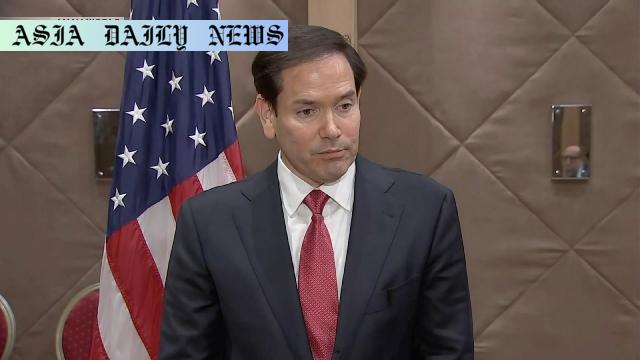ASEAN: Rubio visits Malaysia to reaffirm U.S. commitment to the Indo-Pacific region amid China’s growing assertiveness.

Rubio’s Commitment to ASEAN and the Indo-Pacific
The U.S. Secretary of State Marco Rubio embarks on his first visit to Asia as part of a high-profile trip to Malaysia. During this visit, Rubio aims to attend significant meetings hosted by the Association of Southeast Asian Nations (ASEAN). The primary objective of this four-day visit is to reaffirm the U.S.’s steadfast commitment to the Indo-Pacific region while collaborating with its regional partners to address pressing geopolitical issues.
Held in Malaysia’s vibrant capital, Kuala Lumpur, these dialogues underscore the strategic importance of ASEAN as a cornerstone of stability and progress in the Indo-Pacific. As China continues to assert stronger control and influence across the region, the U.S.’s participation is viewed as both timely and crucial. Rubio’s visit seeks not only to forge stronger diplomatic ties with regional powers but also to send a powerful message about Washington’s dedication to this dynamic and vital part of the globe.
Renewing U.S.-ASEAN Collaboration Amid Challenges
ASEAN, a ten-member organization, plays a pivotal role in advancing economic growth, stability, and security in Southeast Asia. Rubio’s engagement with ASEAN foreign ministers during this trip is set to revolve around amplifying cooperation on shared priorities like regional economic prosperity, containing global challenges like climate change, and confronting security issues.
Concurrently, the trip reflects increasing concerns over China’s growing dominance in the Indo-Pacific. Rubio is known for his firm stance against Beijing’s aggressive actions, and his planned discussions will seek to address these concerns through collective diplomacy. U.S. officials have reiterated the strategic value of this trip in reaffirming America’s allies of its enduring commitment. Rubio’s presence is a clear statement that the region remains a priority for Washington.
Bolstering Strategic Stability in the Indo-Pacific
Among the other challenges Rubio aims to discuss is ensuring strategic stability in the Indo-Pacific. The region, known for its economic vitality and geopolitical sensitivity, is vital not only to ASEAN but also to global prosperity. Rubio’s planned emphasis on building alliances and countering unilateral aggressions resonates with Washington’s broader Indo-Pacific strategy under the current administration.
American officials suggest that Rubio seeks to propose concrete initiatives for enhancing maritime cooperation and economic engagement, along with discussions around evolving threats such as cybersecurity and pandemic preparedness. The visit also marks an opportunity to renew faith amongst Southeast Asian nations about the U.S.’s consistent backing in maintaining an equitable, rule-based regional framework despite rising tensions.
Commentary
ASEAN: A Crucial Crossroads
Marco Rubio’s visit to Malaysia to participate in ASEAN meetings holds immense significance for the U.S.’s broader foreign policy. As Southeast Asia increasingly emerges as a focal point in the Indo-Pacific, strategic partnerships among countries within ASEAN and external allies like the U.S. are essential to maintaining equilibrium in the face of rapid changes. Rubio’s engagement in ASEAN dialogues symbolizes Washington’s enduring commitment to fostering these partnerships.
Addressing China’s Expanding Presence
The discussions during these meetings cannot escape the looming shadow of China’s rising influence. Beijing’s assertive actions across the South China Sea have inevitably stirred anxieties amongst its neighbors. Rubio’s tough approach toward Beijing could serve as a rallying call for ASEAN members to remain vigilant. Yet, balancing strong diplomatic language with actionable cooperation will be a challenge for the U.S. as it seeks to reinforce trust with ASEAN nations.
Looking Toward a Unified Indo-Pacific
Rubio’s inaugural visit to Southeast Asia also offers an opportunity to reframe the Indo-Pacific narrative under the U.S. vision. This region’s prospects are catalyzed by multilateral partnerships, and Washington’s policies are being closely observed. Its neighbors expect actions, not merely assurances, and it will be valuable to see what substantive measures Rubio proposes. Ultimately, this trip is a reminder of the dynamic role ASEAN plays globally and the importance of robust U.S. participation in conversations shaping the future.


